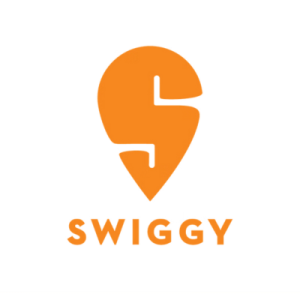
Swiggy IPO Closed
Already have an account? Apply now
Schedule of Swiggy
| Issue open date | 06 Nov 2024 |
| Issue close date | 08 Nov 2024 |
| UPI mandate deadline | 08 Nov 2024 (5 PM) |
| Allotment finalization | 11 Nov 2024 |
| Refund initiation | 12 Nov 2024 |
| Share credit | 12 Nov 2024 |
| Listing date | 13 Nov 2024 |
| Mandate end date | 23 Nov 2024 |
| Lock-in end date for anchor investors (50%) | 11 Dec 2024 |
| Lock-in end date for anchor investors (remaining) | 09 Feb 2025 |
Note: The schedule is tentative. The anchor lock-in period ends 30 days after the actual allotment date for 50% of the shares and 90 days after for the remaining portion. The allotment status can be checked on the registrar's website and the exchange website.
About Swiggy
Founded in 2014, Swiggy is now one of India’s top platforms for food and grocery delivery. As it gets ready for its IPO, Swiggy plans to grow even more, focusing on quick commerce with Instamart. Competing with Zepto and Zomato-backed Blinkit, Swiggy’s size and strong market presence give it an edge. The IPO will help fund its expansion and strengthen its market position.
Swiggy’s IPO: Can it take down Zomato? You can read this post here by The Daily Brief.
Financials of Swiggy
Issue size
| Funds Raised in the IPO | Amount |
| Overall | ₹11327.43 crores |
| Fresh Issue | ₹4499 crores |
| Offer for sale | ₹6828.43 crores |
Utilisation of proceeds
| Purpose | INR crores (%) |
| Investment in Scootsy (for debt repayment) | ₹164.8 (3.66%) |
| Investment in Scootsy (for Dark Store expansion and lease payments) | ₹1178.7 (26.20%) |
| Investment in technology and cloud infrastructure | ₹703.4 (15.63%) |
| Brand marketing and business promotion expenses | ₹1115.30 (24.79%) |
| Funding inorganic growth and general corporate expenses | 1337.10 (29.72%) |
Strengths
- Swiggy’s operating revenue increased 36% year on year for FY24, reaching ₹11,247 crore. Additionally, the company successfully reduced its losses by 44% to ₹2,350 crore during the same period.
- Swiggy has an employee base of over 5000, alongside a fleet of more than 200,000 delivery executives, ensuring smooth and efficient operations.
- The company has diversified its offerings through platforms like Instamart (quick grocery delivery) and Swiggy Genie (pick-up and drop services), expanding its reach into non-food verticals.
- The company operates in over 500 cities across India, making it a dominant player in various geographic locations.
- Swiggy uses machine learning algorithms to deliver a more seamless and improved user experience.
Risks
- Swiggy has faced consistent net losses and negative cash flows since inception. Despite revenue growth from services like Food Delivery and Quick Commerce, high costs such as advertising and delivery pose ongoing challenges.
- Swiggy’s success relies on cost-effective user acquisition and retention. Changes in preferences or competitor offers could reduce its user base, affecting revenue.
- Retaining restaurant and merchant partners is crucial. If partners increase prices or switch to competitors, order volumes may decline.
- Effective management of Dark Stores is vital for Quick Commerce. Poor management could disrupt services, raise costs, and lower user satisfaction.
- Potential changes in government regulations for the e-commerce and food delivery sectors could threaten Swiggy’s demand and overall business model.
Subscription Figures for Swiggy
Subscription numbers as of 07:00 pm on 8 Nov 2024:
| Category | Shares Reserved | Shares Bid | Subscription (No. of times) |
|---|---|---|---|
| Qualified Institutional Buyers (QIBs) | 8,69,23,475 | 52,30,89,494 | 6.02 |
| Non Institutional Investors | 4,34,61,737 | 1,79,01,724 | 0.41 |
| Retail Individual Investors (RIIs) | 2,89,74,491 | 3,30,79,304 | 1.14 |
| Employees | 7,50,000 | 12,37,470 | 1.65 |
| Total | 16,01,09,703 | 57,53,07,992 | 3.59 |
Note: When evaluating IPOs, one should not just look at grey market premiums. The subscription numbers give a clearer picture of investor interest. Read this article to learn how to track the live IPO subscription data.
Media coverage
- Finshots – Unpacking the Swiggy IPO
Swiggy is one of India’s leading food delivery platforms and it has transformed into a major player in the quick commerce space through its Instamart business. As of 2024, it had a presence in over 500 cities across India, with its food delivery and quick commerce services reaching millions of households.
In the financial year 2023-24, Swiggy’s B2C gross order value (GOV) reached an impressive ₹35,000 crores, driven by both food delivery and the rapid growth of Instamart. Despite this surge, quick commerce, particularly Instamart, accounts for a significant portion of the company’s losses, contributing to 91% of Swiggy’s overall EBITDA losses. With an upcoming IPO valued at about ₹11,600 crores, Swiggy aims to raise fresh capital to bolster its quick commerce arm by adding more dark stores and continue its fight against growing competitors like Zomato’s Blinkit and Zepto.
You can read this post here by Finshots to learn more about Swiggy’s business and its IPO.
